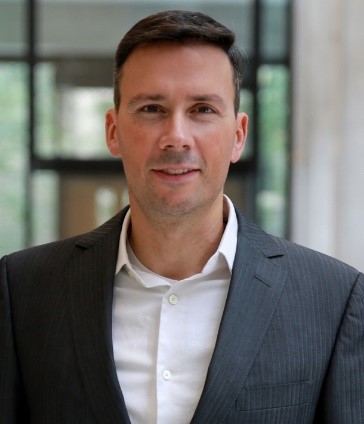Fluids technologies for the world’s largest fluids challenge
ABSTRACT
Global energy and associated environmental impacts constitute the world’s most large-scale fluids challenge. Microscale and nanoscale transport have important roles to play in increasing the efficiency of current energy operations, and enabling new renewable sources. This talk will focus on our group’s work in this area, focused on CO2 utilization and CO2 conversion. In the area of CO2 utilization, I will outline the development of microfluidic and nanofluidic technologies to inform established CO2 utilization strategies in current energy operations - services now offered commercially to energy and chemical companies worldwide. These technologies are chip-based systems similar to those developed for biomedical applications, but with robustness to chemistries, temperatures and pressures typical of heavy industry. In the area of CO2 conversion, I will describe our work in electrocatalytic CO2 conversion employing nanoscale catalysts, microscale transport, and large scale electrolyzer systems. These technologies are not chip-based systems, and instead rely on microscale and nanoscale transport within electrodes of large scale reactors. We focus here on the efficient electroproduction of multi-carbon products - ethylene, ethanol, and propanol - from CO2 and renewable electricity. Our recent achievements will be highlighted along with our learnings from the development of the world’s largest CO2 electrolyzer. The talk will close with a reflection on the energy transition ahead, to net-zero 2050, and the increased importance of energy security for Europe and the world.
BIOGRAPHY
David Sinton is a Professor and Canada Research Chair in the Department of Mechanical & Industrial Engineering at the University of Toronto. Prior to joining the University of Toronto, Dr. Sinton was an Associate Professor and Canada Research Chair at the University of Victoria, and a Visiting Associate Professor at Cornell University. The Sinton Lab develops fluid systems for energy applications. The group is application-driven and is currently developing fluid systems to produce renewable fuels and feedstocks from CO2. The group previously developed a library of industrial fluid testing systems to improve chemical performance in the energy industry, now commercialized through the startup Interface Fluidics Ltd. Dr. Sinton was selected to be an NSERC E.W.R. Steacie Memorial Fellow in 2016. He is also a Fellow of the American Association for the Advancement of Science, and the Canadian Academy of Engineering.






